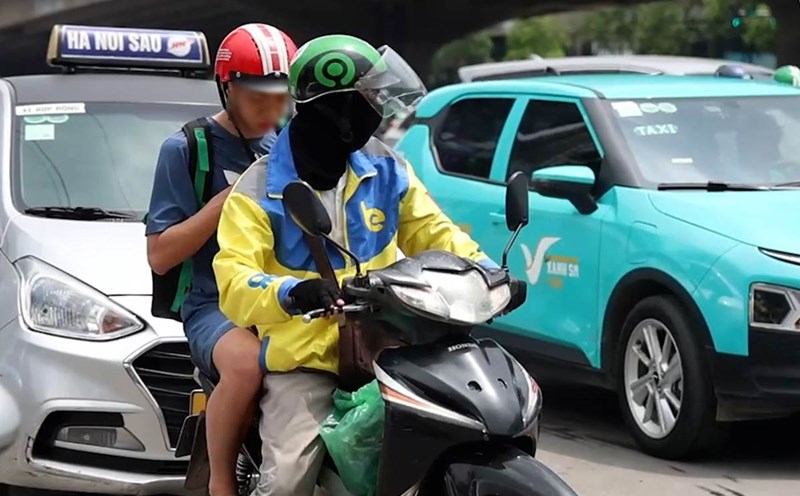On the afternoon of May 22, at a press conference on socio-economics, Mr. Le Thanh Hai - Director of the Center for Economic Application Consulting (HCMC Institute for Research and Development) - said that the city is developing a program to convert all technology motorbike taxis and delivery vehicles to electric vehicles, with a scale of up to about 400,000 vehicles.
According to the plan, in June, the Ho Chi Minh City Institute for Development Studies will complete the draft policy proposal and organize a workshop to collect opinions from experts and scientists. After that, the draft will be compiled and submitted to the Ho Chi Minh City People's Committee for consideration in July.
Regarding feasibility, Mr. Hai said that the Institute has conducted research related to the group of highly emission vehicles, in which technology vehicles are the main subjects.
On average, each technology vehicle operates from 8 to 12 hours a day, traveling about 100km - a significant number leading to a large amount of emissions.
"To control emissions, Ho Chi Minh City must focus on technology vehicles and buses" - Mr. Hai emphasized.
A survey in 2023 with 400 drivers using gasoline cars from companies such as Grab, bee, Gojek showed that for a distance of 100km/day, drivers have to spend about 70,000 - 100,000 VND on gas.
Meanwhile, drivers of SM Blue electric cars only spend about 20,000 VND per day on electric charging.
It is estimated that electric car drivers can save more than 1 million VND per month. Mr. Hai commented: "If you use this savings to pay for electric vehicles, the driver can complete the payment within 24 - 30 months".
Mr. Hai affirmed that this is the basis for believing that the program to switch to electric vehicles for technology drivers is completely feasible.

Previously, in November 2024, the Ho Chi Minh City Institute for Development Studies organized a workshop on this program. Here, financial institutions, commercial banks and the Ho Chi Minh City Department of Transport (now the Department of Construction) all expressed strong support.
Many banks and financial institutions have committed to developing preferential lending programs to support drivers in switching to electric vehicles.
At the same time, electric vehicle manufacturing and trading enterprises also affirmed their readiness to have preferential policies to accompany Ho Chi Minh City.
The Ho Chi Minh City Institute for Development Studies also recommended that the City propose to the Central Government to exempt registration fees for electric vehicles registered for the first time for 2 years and exempt value-added tax (VAT) for technology drivers using electric vehicles.
"If electric vehicle drivers are exempted from VAT directly on invoices, within 2-3 years, it will create a clear difference between electric vehicles and gasoline vehicles, thereby promoting the conversion process" - Mr. Hai analyzed.
According to Mr. Hai, if the program is approved and implemented, it is expected that in the next 2 years, Ho Chi Minh City can convert about 80% of two-wheeled technology vehicles to electric vehicles, aiming to complete the entire conversion within 3 - 5 years when combined with emission control policies.











